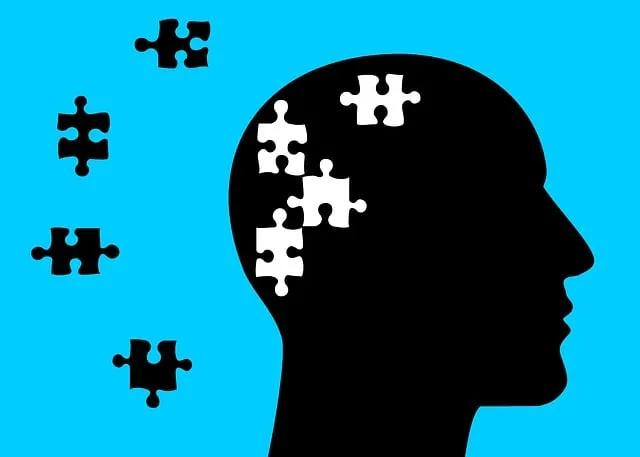Burnout among healthcare providers at Northglenn Kaiser Permanente is addressed through emotional intelligence workshops, comprehensive mental wellness programs, and effective communication strategies highlighted in positive Northglenn Kaiser Permanente behavioral health services reviews. The facility offers diverse initiatives like conflict resolution, mindfulness meditation, flexible scheduling, and peer mentoring to reduce stress, boost job satisfaction, and mitigate burnout risks. These efforts foster a culture of resilience, cultural sensitivity, and work-life balance, enhancing both staff well-being and patient care quality as seen in the consistent positive Northglenn Kaiser Permanente behavioral health services reviews.
“Healthcare provider burnout is a growing concern, impacting not only individual well-being but also patient care. This comprehensive guide explores strategies to combat burnout among healthcare professionals, focusing on practical approaches and successful initiatives. We delve into the root causes and far-reaching effects of this issue, highlighting Northglenn Kaiser Permanente Behavioral Health Services as a leading example. Through effective communication, work-life balance programs, and robust employee support, organizations can foster resilience and prevent burnout.”
- Understanding Burnout Among Healthcare Providers: Causes and Impact
- Northglenn Kaiser Permanente Behavioral Health Services: An Overview
- Effective Communication Strategies for Burnout Prevention
- Work-Life Balance Initiatives and Their Role in Burnout Mitigation
- Employee Support Programs: Enhancing Resilience and Well-being
Understanding Burnout Among Healthcare Providers: Causes and Impact

Burnout among healthcare providers is a growing concern, with high-stress work environments and heavy patient loads contributing to significant mental health challenges. This phenomenon often manifests as emotional exhaustion, depersonalization, and reduced personal accomplishment, impacting not only the well-being of healthcare workers but also the quality of care they deliver. The Northglenn Kaiser Permanente behavioral health services reviews highlight these issues frequently among its staff.
The causes of burnout are multifaceted, ranging from heavy workload and long working hours to a lack of support systems and clear risk management planning for mental health professionals. Emotional Intelligence (EQ) has emerged as a crucial tool in mitigating burnout, enabling healthcare providers to better understand and manage their emotions and those of their patients. Additionally, Stress Management Workshops Organization offers valuable resources for developing coping strategies and fostering resilience.
Northglenn Kaiser Permanente Behavioral Health Services: An Overview

Northglenn Kaiser Permanente Behavioral Health Services stands out as a beacon of mental wellness support within the community. This facility is dedicated to providing comprehensive care, focusing on both individual and collective well-being. Their approach integrates innovative therapeutic methods with traditional practices, ensuring an inclusive environment that caters to diverse patient needs.
Reviews highlight the service’s effectiveness in managing stress, anxiety, and depression through various programs. One notable aspect is their emphasis on conflict resolution techniques, teaching patients powerful tools for coping skills development. Additionally, cultural sensitivity in mental healthcare practice is a cornerstone, fostering an understanding and respect for different backgrounds, which significantly enhances patient experiences and outcomes.
Effective Communication Strategies for Burnout Prevention

Effective communication strategies are instrumental in preventing burnout among healthcare providers. Encouraging open dialogue and active listening allows professionals to express their concerns, share workload challenges, and seek support from peers and supervisors. Implementing these practices within organizations like Northglenn Kaiser Permanente behavioral health services can foster a supportive environment where staff feel heard and valued.
Additionally, integrating programs that promote mental health education and coping skills development—such as Mindfulness Meditation—can help healthcare providers manage stress and maintain work-life balance. Regularly reviewing and updating these initiatives based on feedback from the team ensures their relevance and effectiveness in addressing emerging burnout risks, as highlighted in recent behavioral health services reviews.
Work-Life Balance Initiatives and Their Role in Burnout Mitigation

In today’s demanding healthcare landscape, work-life balance initiatives play a pivotal role in burnout prevention for providers. Organizations like Northglenn Kaiser Permanente recognize this and have implemented policies that foster a healthier equilibrium between professional and personal commitments. These initiatives range from flexible scheduling to remote work options, allowing behavioral health services professionals to manage their well-being effectively. By embracing such strategies, healthcare providers can reduce stress levels, enhance job satisfaction, and maintain emotional intelligence—a critical component of mental wellness.
Moreover, Northglenn Kaiser Permanente’s behavioral health services reviews highlight the positive impact of these initiatives. The Community Outreach Program Implementation, for instance, not only expands access to care but also provides a support system that promotes provider well-being. Through these programs, professionals can connect with peers and engage in activities that foster emotional intelligence, ultimately mitigating burnout risks and ensuring they remain engaged and passionate about their work.
Employee Support Programs: Enhancing Resilience and Well-being

Employee Support Programs play a pivotal role in preventing burnout among healthcare providers. Organizations like Northglenn Kaiser Permanente offer behavioral health services that are highly reviewed for their effectiveness in promoting resilience and well-being. These programs not only provide access to mental health resources but also foster an environment of open communication, which is crucial for stress reduction. By integrating Emotional Intelligence and Cultural Sensitivity in Mental Healthcare Practice, healthcare providers can better connect with patients from diverse backgrounds, reducing the emotional toll that comes with challenging situations.
The implementation of these support systems helps healthcare workers develop coping strategies tailored to their unique experiences. Through group therapy sessions, peer mentoring, and individual counseling, professionals in the sector enhance their ability to manage stress effectively. By incorporating evidence-based Stress Reduction Methods, organizations can create a culture that prioritizes mental health, ensuring staff members feel valued and supported, ultimately leading to higher job satisfaction and retention rates.
Healthcare provider burnout is a pressing issue, yet with the right strategies, organizations like Northglenn Kaiser Permanente Behavioral Health Services can foster resilient work environments. By implementing effective communication, promoting work-life balance, and establishing employee support programs, healthcare facilities can prevent burnout, enhance staff well-being, and ultimately improve patient care. The comprehensive approach, as highlighted in this article through Northglenn Kaiser Permanente behavioral health services reviews, underscores the significant impact of these initiatives on mitigating burnout and creating a sustainable workforce.






